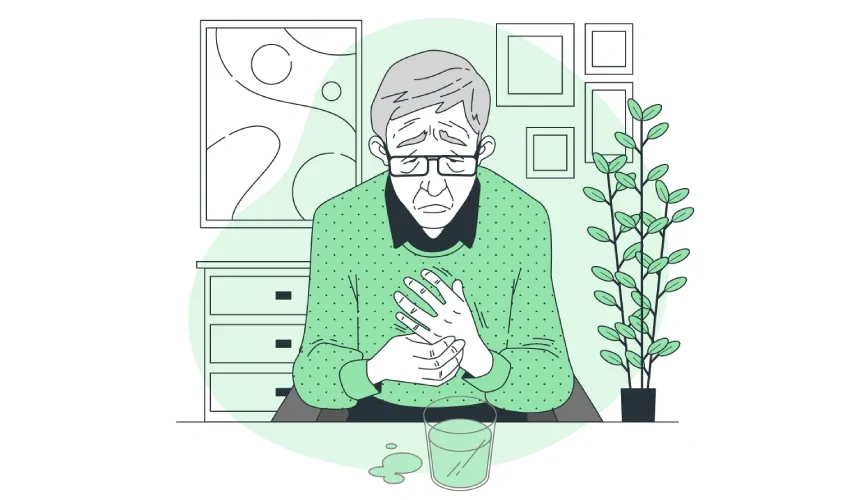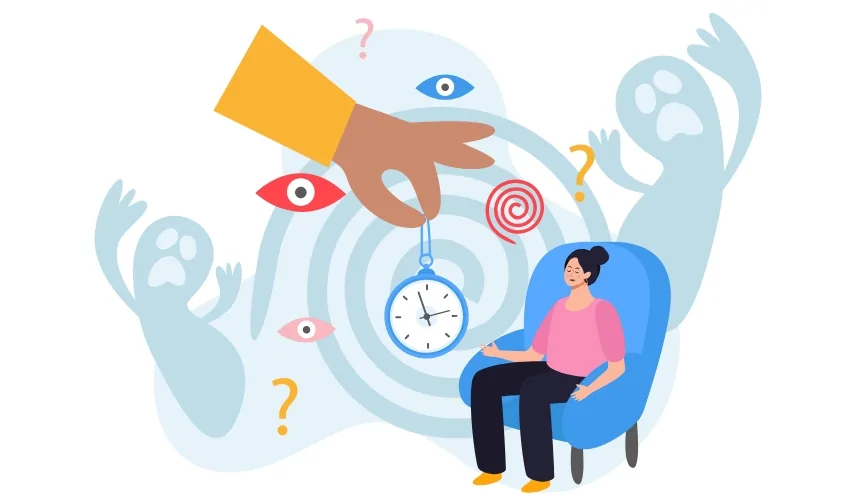
What is a Midlife Crisis?
To understand this issue, you first need to decide what age is considered average, because the feeling of age is quite subjective - some people feel old at 40, while others feel young at 60. But usually, the average age is considered to be from 35 to 55 years. People at this age already have something to look back on and they actively reconsider their values, goals and achievements. Often this leads to a feeling of discontent, insecurity and causes a lot of stress in a person. According to various sources, a midlife crisis was experienced by 25 to 50 percent of all respondents. That is, at least every fourth person faces this phenomenon.
Some experts believe that it is quite normal to experience a midlife crisis, while others consider it a dangerous psychological state that can push a person to rash actions. Let's figure out its causes, symptoms and understand why a midlife crisis affects men and women differently.
Symptoms and Manifestations
A midlife crisis is often a kind of transition from youth to maturity. Physiology changes, signs of aging appear. Accumulated professional experience allows you to think about the correctness or incorrectness of your career choice. During this period, a person may strive for changes in family life. Often during this period of life, there is a desire to find new sources of satisfaction. Obvious symptoms of a midlife crisis in a person are:
- Emotional instability and a feeling of inferiority.
- Loss of interest in previously favorite activities and hobbies.
- Dissatisfaction with current achievements and a desire for change.
- Changes in appearance, desire for youth and attractiveness.
- Doubts about your own values and the chosen path in life.
- Deterioration of relationships with loved ones, especially in marriage.
- A desire to reconsider professional achievements.
- Search for new sources of satisfaction, often outside the family and usual social circle.
- Increased stress levels and dissatisfaction with circumstances.
- Reflections on the meaning of life, death and loss of time.
The midlife crisis is often accompanied by depressive states, we recommend taking an online depression test.
Male midlife crisis

The behavior of men and women during a midlife crisis has significant differences. In men, a midlife crisis often manifests itself through:
- Identity crisis: a man often thinks about the decisions made in life. Maybe it was worth starting my own business? What if I had not started a family? Why didn’t I invest in cryptocurrency like my friends? What have I achieved in principle? Reflection on your role in the family and society, career achievements become integral companions of this period of life for many men.
- Loss of strength and youth: a man begins to feel anxious about the loss of physical strength. For some, this becomes a reason to start training, but most simply reflect on this.
- Problems at work: during this period, many men face doubts about the correctness of the chosen professional path. At this age, a man already clearly understands what kind of activity he likes and what he does not. Thoughts about changing professions and reconsidering career priorities appear.
- Alienation from family: children grow up and become distant. The spouse ages and loses sexual attractiveness. Friends have a lot of their own worries and never have time. All these factors often lead to a feeling of alienation from their family and friends.
- Search for new forms of self-affirmation: men may strive for new hobbies, interests, or thrills.
- Increased tendency to self-isolation: a person becomes more withdrawn, shows less emotion, and does not talk about his problems. This only complicates the process of going through a crisis.
During this period, many men have problems with alcohol, we recommend taking the Michigan Alcohol Screening Test.
Midlife Crisis in Women

Women's behavior during a midlife crisis is in many ways similar to men, but also has a number of features, for example:
- Discrepancy between expectations and reality: after 35 years, a feeling of disappointment with regard to objective life achievements often appears.
- Self-esteem issues: age-related changes in appearance, weight gain and health problems often lead to a deterioration in self-esteem and the development of complexes. A decrease in attractiveness to the opposite sex also plays an important role.
- Relationship issues: the emergence of tension in relationships with a loved one and children. This is especially evident against the background of many years of caring for the needs of the family and a lack of praise/recognition of one's efforts.
- Search for new meaning: the desire for new interests, hobbies and forms of self-development. This can be one of the ways to fill the inner emptiness during a period of crisis.
- The need for self-affirmation: at this age, women often face the need to rethink their identity and strive for recognition of their talents by others.
Causes of the midlife crisis
Understanding the causes of a midlife crisis helps a person prepare mentally and go through this period correctly. Among the main reasons for the emergence of such a crisis:
- Identity crisis. People wonder about their place in life and doubt the correctness of previously made vital decisions.
- Changes in family life: various changes in family relationships, for example, the appearance of children or grandchildren, divorce.
- Career aspects: dissatisfaction with career growth, the desire for new challenges or a feeling of accumulated fatigue.
- Physical changes: the appearance of age-related changes in appearance, a feeling of loss of youth and strength. At this age, many people develop chronic diseases that significantly affect many areas of life.
- Social factors: modern societal expectations, stereotypes and socio-cultural norms often put pressure on people, forcing them to think about why they could not live up to expectations.
- Economic aspects: financial worries, dissatisfaction with the financial situation.
- Children leaving home: a feeling of emptiness or loss of purpose in life.
- Death of parents or friends: the loss of loved ones makes you think about the finiteness of human life and the inexorable approach of your own old age and death.
Arguments against the existence of the midlife crisis
During a midlife crisis, many people experience real psychological changes and new challenges. One of the earliest researchers of this phenomenon was psychoanalyst Eliot Jax. In his book "Death and the Midlife Crisis," he described how after 35, many men and women begin to acutely feel death on an instinctive level, re-evaluating many aspects of their lives.
But there is also an opposite opinion. For example, a group of Swiss scientists from the University of Zurich conducted their own study. Experts said that the data does not confirm the obvious existence of such a crisis in a person's life between 35 and 55 years. And thinking about the results and life prospects is an ongoing process in the conscious period of a person's life and its intensity and manifestations are more likely associated with accumulated life experience, rather than a certain age.
Another study involving residents of 132 countries showed that the indicator of satisfaction and happiness in life changes along a U-shaped curve. Its lowest points are approximately at the age of 44-55.
We recommend that you take the Oxford Happiness Questionnaire to find out how satisfied you are with your life.
However, there are also strong arguments against the existence of a midlife crisis as a separate psychological state:
- Weak evidence base: Some experts argue that the concept itself is mainly based on generally accepted stereotypes and observations, and not on specific data.
- Individual differences: each person is unique, and if one person views their life period as a midlife crisis, then for another it may be a period of growth and development.
- External circumstances: the changes that people experience in middle age (changes in career / family life, etc.) are often caused by external circumstances, and not by the internal psychological state of the person.
As we can see, there are different opinions of psychologists on the concept of a midlife crisis and each group has worthy arguments.
Connection with other disorders
Midlife crisis is closely connected with depression, anxiety disorders, apathy and low self-esteem. Depending on life situations, a person becomes more susceptible to depression or, conversely, unjustified mood swings and surges of energy. Such changes in health and mood, in turn, lead to rash decisions in serious matters regarding career, place of residence and relationships.
How to survive this period correctly
To successfully overcome a midlife crisis, it is important to explore your feelings and listen to the observations of loved ones. A number of the following recommendations may also help:
- Seek support from a psychologist or other specialist in a timely manner.
- Clarify your values and priorities. Decide what is important to you, and not to your boss, children or parents.
- Accept life changes and start looking for new opportunities.
- Maintain a healthy lifestyle: take care of your physical and mental health. It really helps.
- Just wait. The realization of the need to fully live the life that you have will come anyway. By gradually discarding useless reproaches and regrets, you will learn to enjoy your life more.
- Communicate more. Psychologists agree that friendly communication with other people significantly reduces stress levels and increases life satisfaction.
A midlife crisis is an interesting period in a person's life, although many would like to avoid it. Despite the different opinions of experts on this matter, it is definitely possible to say that many people have periods of dissatisfaction with their lives and it is important to learn to maintain an optimistic outlook on the world in order to overcome them.